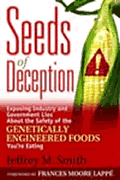By Rob Pell
October 9, 2014
NewsWithViews.com
Do You Trust Monsanto, Dow Chemical & Pepsi To Decide How Much You Need To Know About The Food You Eat? I Want The Freedom To Make My Own Informed Food Decisions.
Reason
#1 To Vote Yes ... Labeling GMOs will let me decide
what's best for my family.
When a company spends billions of dollars developing genetically modified organisms (GMOs), why would they then spend millions to prevent the labeling and advertising of their new products? It’s obviously because they have something to hide. In November of 2013, bio-tech food giant Monsanto spearheaded opposition to a proposed law that would have mandated the labeling of genetically modified foods in Washington state. Opponents raised over $22 million, while supporters raised only $6 million. The bill was narrowly defeated by Monsanto and friends. Passage would have had no impact on the legality of GMOs, just the right to know what we're eating.
Reason #2 To Vote Yes … Passage will have no impact on the legality of GMOs, just our right to know what we're eating.
These companies willingly spend tens of millions of dollars to avoid GMO labeling trying to keep us in the dark and then ironically and untruthfully claim it will cost too much to add GMO information to product labels. While untrue (see reason #3 below), the cost argument is the same foolish nonsense they complained about when laws were first proposed requiring nutrition information on food labels. At this point virtually everyone who can read has at one time or another benefited by using the nutrition label on a food package to help them make an informed, intelligent selection. Nonetheless, they will do, say, and spend almost anything to keep consumers uninformed.
That is how Monsanto plays the game:
• FIRST they collect six-figure checks from big chemical and junk food companies like PepsiCo, Dow Chemical and Hershey• NEXT they create dishonest ads that falsely paint the measure as “confusing,” “poorly written” and “full of loopholes”• AND FINALLY they carpet-bomb the airwaves until they've confused and misled enough voters to deny us our right to know what’s in our food.
Now they're trying to do the same thing in Oregon. Monsanto, Dow Chemical, Pepsi, and all the other big pesticide and junk food companies who profit from selling GMOs, are funding the anti-labeling campaign. They know that they don’t have to tell the truth – they just have to confuse enough voters to defeat Measure 92. Last week, Pepsi contributed another $250 thousand for the sole purpose of keeping GMO ingredients a secret. So far, Monsanto has spent $1.5 million in Oregon to prevent GMOs from being labeled. The top priority of these companies is to keep us in the dark so they can make more money. They've all gotten away with it before. Now it's up to us to stop them from getting away with it in Oregon by voting YES on 92.
Reason #3 To Vote Yes … Monsanto's claims about increased costs don't match up with the truth.
The big chemical companies that profit from selling genetically engineered foods have spent millions trying to confuse voters with the false claim that labeling genetically engineered foods will raise prices and hurt consumers. But according to Consumers Union, the parent organization of Consumer Reports, that just isn’t the case. In fact their recent study determined that labeling GMO food will cost individual consumers in Oregon less than a penny a day (about $2.30/yr).
The truth is that food companies routinely change their labels for all sorts of reasons (mostly for marketing purposes, with statements like: New & Improved) without increasing the cost. In fact, even the incredibly small cost conferred to consumers from a new price tag is larger than the cost of disclosing if a product is genetically engineered.
What’s more, labeling the genetically engineered foods that are exported to any of the 64 countries that already require labeling has not increased the cost of our food. Many American foods companies sell their products in those countries and disclose genetically engineered ingredients on their labels without incurring any additional costs. Many of those labels are already in English and could easily be ready to use by the Measure 92 January 2016 implementation deadline. If they can provide that information to their customers in Europe, Japan and Australia, they can do the same here in Oregon.
Reason #4 To Vote Yes … GMOs have undergone virtually no long-term testing to prove safety claims.
GMOs are created in labs by scientists combining organisms from two totally different biological kingdoms that could never be blended by nature alone. For example, Monsanto has crossed genetic material from a bacterial pesticide, Bt (Bacillus thuringiensis), with corn. The goal was to create a pest-resistant plant. This means that any pests attempting to eat the corn plant will die since the pesticide is part of every cell of the plant. The resultant GMO plant, known as Bt Corn, is itself registered as a pesticide with the EPA. So, if you feed this corn to your cattle, your chickens, or your children, you’ll be feeding them an actual pesticide in every bite. Outside of a Monsanto laboratory, Bt could never have naturally become part of the corn seed. Even though GMOs have been created for ingestion as a long-term food source for humans, there have been no long or medium-term safety tests done by the US Food and Drug Administration (FDA), thanks to a 20-year-old policy that says it’s up to the bio-tech companies to determine the safety of genetically engineered foods.
Reason #5 To Vote Yes … Monsanto's Safety Claims Have Been Proven Dead Wrong, Time And Again.
Monsanto and the US Environmental Protection Agency were adamant the pesticide in GMO corn, Bt, would only affect insects munching on the crop. They claimed Bt toxin, would be completely destroyed in the human digestive system, couldn't possibly build up in our bodies', and would have no possible impact on animals and humans.
These claims were proven dead wrong. In 2012, doctors at Sherbrooke University Hospital in Quebec, found Bt toxin produced by GMO corn in the blood of 93% of pregnant women tested and in the umbilical blood from 80% of their babies.
|
|
In 1944, Monsanto became one of the first manufacturers of the insecticide DDT. The company reported it to be safe because it was not immediately acutely toxic. It was 30 years before the devastating environmental impacts were discovered and acknowledged. It can literally take decades for the effects of environmental toxins to be accurately identified. Thorough testing is of paramount importance. Applying the lessons learned from the DDT fiasco to the use of GMOs should tell us that we may not currently be aware of all the possible negative future outcomes from widespread GMOs.
Reason #6 To Vote Yes … We Need To Bring Common Sense About GMOs To Oregon. It's Our Right To Know What's In Our Food.
So while all other developed countries set standards to identify and label GMO plants, a government agency in charge of protecting US citizens essentially lets bio-tech companies, who stand to make billions in profits from GMO foods, create their own GMO policies that include “voluntary safety consultations.”
VOTE YES ON 92 … IT'S OUR RIGHT TO KNOW
They'll Do Or Say Anything To Protect Their Corporate Profits
For more information visit Sunshine Natural Foods or go to the Oregon Right To Know website.
© 2014 Robert Pell - All Rights Reserve
Realated Article:
1- Vote YES on 17-58 To Restrict GMOs
Rob Pell
owns and operates Sunshine Natural Foods in Grants Pass, Oregon and
has 35 years experience helping people with natural foods, products,
 exercise
and healing.
exercise
and healing.
Website: Sunshine Natural Foods
E-Mail: RobertPell9@gmail.com














 Share This Article
Share This Article






